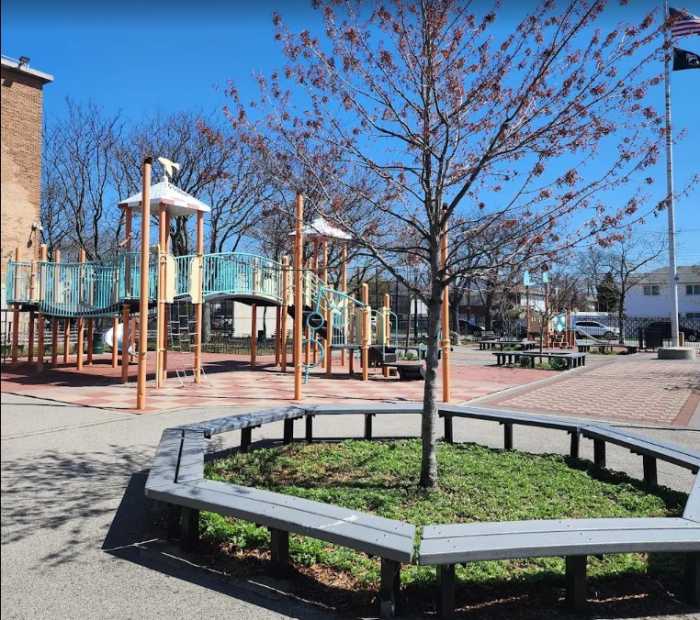By Arlene McKanic
“Oh, these are kids,” I thought as I checked out the program for Tomorrow’s Artists Today, the concert held on the blisteringly cold evening of Jan. 11 at Flushing Town Hall.
Very young musicians are often a pleasure to listen to because what they lack in precision and maturity is made up for in the passion and freshness that comes from the joy and pride at mastering a Bach or Beethoven or Schumann piece for the first time. Moreover, the hall was giving out chocolate truffles at the auditorium door, so even if the musicians were bad, the trip was worth it.
Fortunately, both musicians and truffles were superb. I wasn’t surprised to learn that all of the performers were at, or are going to be at, the Juilliard School.
A slight technical problem with the grand piano — a Steinway — delayed the start of the evening. An emergency piano tuner was called in and the audience waited patiently while every now and then one heard a mournful note sound behind the shut red velvet curtain.
Finally, hosts David Close and Barbara Podgurski took the stage. Close is the Executive and Artistic Director of Musica Reginae Productions and Artistic Director and Conductor of The Oratorio Society of Queens and the Orchestral Arts Ensemble of Queens. Podgurski is a teacher and musician with a master’s degree in music performance and theory, who had coached most of the young performers that evening.
Close and Podgurski introduced the first artist, 11-year-old Katherine Dreyfuss, who Podgurski accompanied on the piano during three pieces — Bach's’ Concerto No. 2 in E Major, S1042: Allegro, Beethoven’s Romanze in F Major, Op. 50, and Novacek’s Perpetuum Mobile.
Dreyfuss appeared in a black gown with highlights of flowery sequins and with her hair in a shiny pony tail. She was excellent, especially on the slower passages of the Bach piece, to which she imparted a particular sweetness. The piece was fairly straightforward, but not easy. One could imagine Bach having written it for his battalion of children.
Dreyfuss valiantly handled the leaps up and down the scale in the Beethoven piece, an early work written, according to Close, “past the ‘Moonlight Sonata’ and not quite up to the ‘Eroica Symphony,’” and her fingering and bowing techniques were confident. During Podgurski’s solo piano passages Dreyfuss stood with her head shyly bowed and her instrument reverently held.
Dreyfuss also played “Perpetuum Mobile,” a neurotic little number that must be daunting to learn — “a series of sixteenth notes,” Close said — and must take a great deal of concentration on the part of the violinist to perform, with panache.
She was followed by 13-year-old Joshua Feldman, who opened with Chopin’s Nocturne, Op. 55 No. 1, of which Close said, “… the Irish invented Nocturnes. And they invented Guinness, for which I am eternally grateful.”
The Nocturne was followed by two strenuous Prokofiev works, Sonata No. 3, Op. 28, and Toccata, Op. 11. A toccata, explained Close, is not a type of Italian cheese, but a “touch piece” and this one was written around 1912 — around the same time as Stravinsky’s jarring “Rites of Spring.”
Feldman gave the Nocturne a nice dreaminess, but the Prokofiev works, written for the concert stage as opposed to the salons where classical music was usually played until fairly recently, were powerful and daunting, with cascading notes, screwy, postmodern time signatures and abrupt changes in tempo.
The Toccata was even more challenging, for it is one of those pieces with lots of sequences played with one hand crossed over the other. Prokofiev, no doubt, wrote this one to test the pianist’s mettle and to make a lot of thunderous noise. Feldman, who has been playing the piano since he was 2, performed with a thrilling self-assurance; when he got up for his bow he hadn’t even broken a sweat. He left the stage then came back out for an encore and bouquets of flowers.
“Wow!’ is right,” Close marveled. Then he called a 10-minute intermission.
The next performers were members of the same family who called themselves The Constant Trio. As well as being a clever name for the group, Constant is their family name. They were 18-year-old Daniel, on the violin, 19-year-old Pierre on the viola, and 16-year-old Jessica on the cello — all from Queens Village.
They began with another early Beethoven piece, Trio in C Minor for Strings, Op. 8, which the poor, soon-to-be stone deaf composer wrote around 1802 while he was still living in Vienna — it was one of the first works he assigned a work number to.
Watching the trio was fascinating even before they began. Unlike rock stars, they didn’t count down but began the piece after a bit of subtle eye contact, and they were perfectly and effortlessly in synch. More, you could tell they were enjoying themselves, especially Pierre, who let slip a smile now and then as he played the viola. Jessica Constant seemed a bit more solemn — cellists usually have this gravity about them unless they’re Jacqueline Dupre or somebody — but even she couldn’t suppress a grin when people started clapping before the second movement was over. Their playing was impeccable, and Daniel played with an especially brilliant tone and led his siblings masterfully.
The last performance saw all of the musicians onstage for Schumann’s (“The quintessential romantic composer,” said Close) Quintet in E-flat Major for Piano and Strings, Op. 44. 1st movement. There are few quintets for piano, Podgurski added, and they’re difficult but beautiful.
The work began after a period of tuning up, which was nearly as interesting as the performance itself, with each musician making sure he or she was absolutely in tune with the others. The movement was lovely and exuberant and had passages in which nearly all of the performers were allowed to shine — Jessica Constant displayed the warmth of her cello, Feldman the vivacity of his piano playing. They all got a standing ovation at the end.
Tomorrow’s Artists Today is part of the Discovery Concert series of Musica Reginae Productions. Future performances will be A Chamber Music Interlude Feb. 15, Opera and Art Song Classics March 14 and Piano in the Grand Manner April 18, all at 4 p.m. at Flushing Town Hall.




































